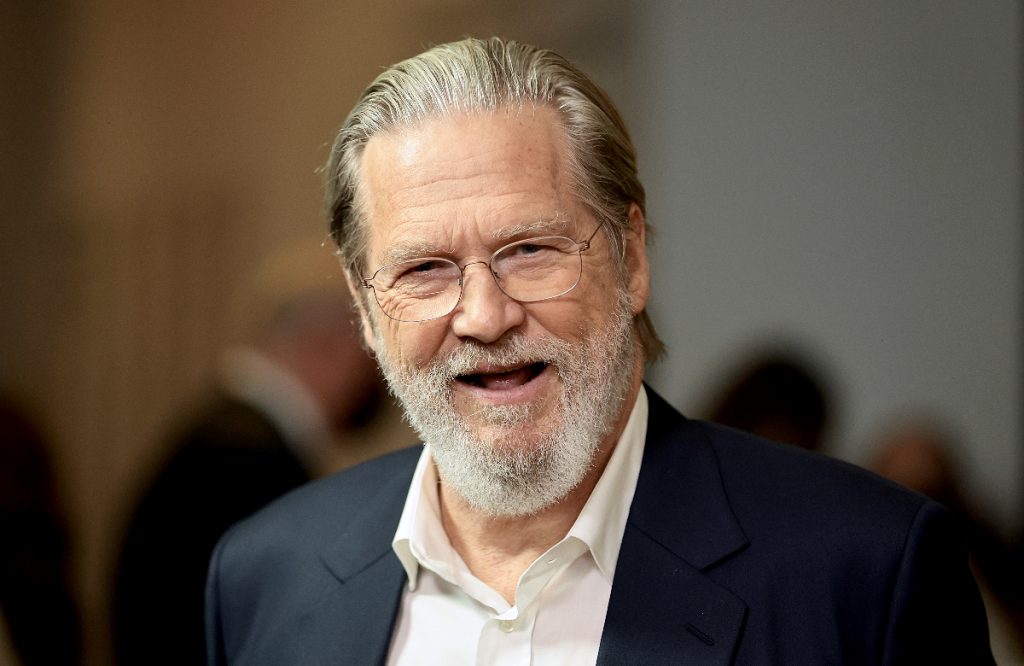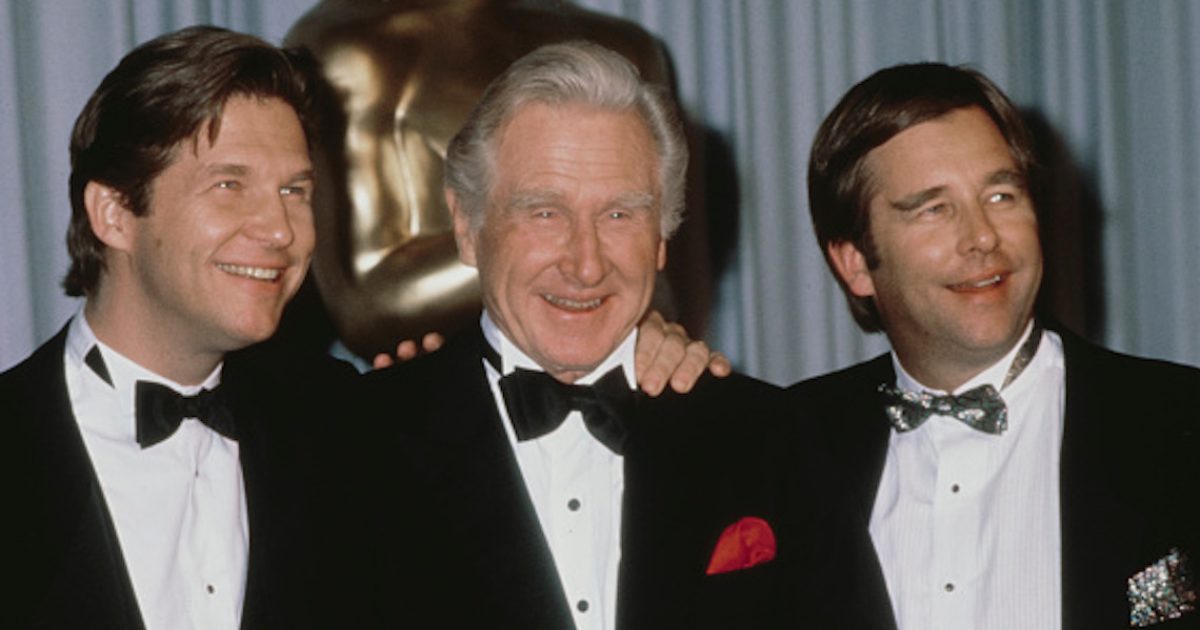Coping With The Loss Of a Parent
- Actor and cancer survivor Jeff Bridges, 74, celebrated the birth of his late dad, actor Lloyd Bridges, this week with a heartwarming Instagram post, featuring the “Big Lebowski” actor as a toddler, looking up at his dad.
- His dad Lloyd Vernet Bridges, Jr, best known for his role as Mike Nelson in “Sea Hunt,” starred in several television series, acted in more than 150 feature films.
- Jeff Bridges was diagnosed with non-Hodgkin lymphoma, a type of blood cancer, back in 2020. In early 2021, while he was undergoing chemotherapy, he caught Covid-19 as well.
- Family support through life’s challenges, even cancer treatment, can make the world of a difference, whether it’s support from friends, family, spouses, or fellow cancer fighters in a support group.
- Dealing with the loss of a loved one to cancer is incredibly challenging, but moving forward with the lessons your loved one shared and remembering you don’t have to forget them can be a great place to start.
His dad Lloyd Vernet Bridges, Jr, best known for his role as Mike Nelson in “Sea Hunt,” starred in several television series, acted in more than 150 feature films, and inspired Bridges to be the strong, positive, and inspirational man that he is today.

Looking back on his dad’s memorable role on “Sea Hunt” in the 60s that he played so well that “people thought he was actually a skin diver,” ultimately seeing “the downside of developing a very strong persona.”
He explained, “Because he knew Shakespeare, he was a great comedian, he was in movies like “High Noon” with Gary Cooper… So early on in my career I really tried hard not to develop a strong persona because I saw how my dad struggled with it.”
Bridges noted how years later his dad ultimately played his uncle in movie called “Blown Away,” which he “knocked out of the park.”
View this post on Instagram
Moving on to talk about how his dad was featured on “Seinfeld” later on in life, something he described as “wonderful,” Bridges said his health “was failing him then but whenever he went on stage or in front of the camera” he did well, even lifting up weights.
Back in 2014, Bridges opened up about how his dad influenced him at such a young age to Hollywood Reporter.
“Unlike a lot of actors, my father encouraged his kids to go into showbiz. He loved all the aspects of show business: knowing the crews, the traveling, the adventures you get involved in,” Bridges said, as told to Bill Higgins.
“He reveled in everything from the actual work to signing autographs and doing interviews. I think that’s something I learned from him. It wasn’t something he said. It was the way he went about living his life in show business.”
Reflecting on how his dad often was in good spirits while on set, Bridges continued, “I remember working with him as a kid on Sea Hunt [a 1958 syndicated series in which Lloyd played a scuba diver] and whenever he came on the set you could see he was having a good time. It made for an easy-going atmosphere. And when you relax, you tend to do your best work.
“He was so good on Sea Hunt that it was almost a double-edged thing. I think he would have liked to have done more Westerns and other things, but his image was tied in with scuba diving.”
More recently, in an interview with People, Bridges’ brother Beau, born Lloyd Vernet Bridges III, spoke about the most important thing he learned from his relatives, saying, “The word we heard a lot growing up was respect. You need to respect all the people that you’re working with, everybody that’s involved in making the film. You need to respect yourself. You need to respect your fellow man.”
Recounting acting in the series “Hearts of the West” with his father, he said, “I really loved making that series. My dad and I had a lot of scenes together. He was a regular in it with me. And so for that reason, it was really wonderful to work with my teacher, my mentor.”
Further explaining their parents’ influence, in the 2023 interview, Beau said, “We weren’t really a ‘Hollywood’ family. My dad was a successful actor, but I don’t think he would’ve said that about himself. And it frustrated me.
“But he wanted us to really live a life of service. He had friends from all walks of life. He and my mom appreciated diversity of all kinds, and that inspired us.”
Beau, who is eight years older than Jeff, Bridges is an 81-year-old actor who began his career as a child star in the 1948 movie “Force of Evil.” Both he and Bridges, also have two other siblings, Garrett Myles Bridges who passed away at just six weeks old from sudden infant death and actress Cindy Bridges, 73.
Their mom Dorothy Bridges, also an actress, who passed away at age 93 in 2009.
Jeff Bridges’ Cancer Battle
Jeff Bridges was diagnosed with lymphoma in 2020 and started chemotherapy treatment right away. Although Bridges hasn’t personally specified which type of lymphoma he was diagnosed with, AARP noted that his cancer was, in fact, non-Hodgkin lymphoma, cancer of a type of white blood cells called lymphocytes, which are part of the immune system.
While cancer treatment was going well, he was also diagnosed with COVID-19 in January 2021, and due to his cancer treatment having weakened his immune system, Bridges wound up spending months in the hospital.
More On Support Through Cancer
- Family Love and Support Makes a World of Difference During Cancer Treatment
- Cancer Support Groups Aren’t for Everyone — We All Have Our Own Way of Coping
- ‘Love This Team’ — Actor Selma Blair Reflects on the Importance of Family as She Deals with Her Health
- Finding the Support You Need to Heal During Cancer Treatment
According to AARP, Bridges’ cancer went into remission quickly after he was put through chemotherapy infusion, which was followed by an oral chemo protocol.
He dubbed his wife as being his “absolute champion” as she stayed by Bridges’ side as he recovered from covid in the hospital. “She really fought to keep me off a ventilator. I didn’t want to be on it, and the doctors didn’t necessarily want that. But Sue was adamant,” he told the news outlet.
He was ultimately treated with a blood plasma called “convalescent plasma,” which consists of viral antibodies.
Despite his struggle, like so many cancer survivors, Bridges was left with a renewed appreciation for life.
“I’ll be honest. I didn’t know if I was going to make it,” he told Esquire in an earlier interview. “I was on death’s door there for a while in the hospital. When I finally went back to work, after a two-year hiatus, it was the most bizarre kind of thing. It felt like a dream.”
“I came back after all that time, and saw the same faces [while shooting ‘The Old Man’], the same cast and crew,” he added. “It was like we had a long weekend. I gathered everyone and I said, ‘I had the most bizarre dream, you guys.’ I was sick and out, but all that feels like a gray mush now.”
Understanding Lymphoma
Jeff Bridge’s battled non-Hodgkin lymphoma, one of the two most common types of lymphoma.
Lymphoma is a cancer of the immune system that affects infection-fighting cells called lymphocytes. And there are more than 40 different types of lymphoma.
Sneaky Lymphoma Symptoms Often Lead to a Late Diagnosis
“Lymphoma is split up into a number of different categories,” Dr. Elise Chong, a medical oncologist at Penn Medicine, previously told SurvivorNet.
“The first distinguishing breakpoint, if you will, is non-Hodgkin lymphoma versus Hodgkin lymphoma,” she added, “and those sound like two different categories. But non-Hodgkin lymphoma comprises the majority of lymphoma, and Hodgkin lymphoma is a single specific type of lymphoma.”
Hodgkin lymphoma has distinctive, giant cells called Reed-Sternberg cells. The presence of these cells, which can be seen under a microscope, will help your doctor determine which of the two lymphoma types you have.
There are a few other important differences between non-Hodgkin lymphoma and Hodgkin lymphoma to note. For one thing, non-Hodgkin lymphoma is much more common. And you’re more likely to be diagnosed with it after age 55, like Jeff Bridges. People usually develop Hodgkin lymphoma at a younger age.
It should be noted that another difference between these two types of lymphoma is that non-Hodgkin lymphoma is more likely to spread in a random fashion and be found in different groups of lymph nodes in the body, while Hodgkin lymphoma is more likely to grow in a uniform way from one group of lymph nodes directly to another.
These two different types of lymphoma behave, spread and respond to treatment differently, so it’s important for you to know which type you have.
Losing a Loved One to Cancer
Grief is an inevitable and essential part of the healing process after losing a loved one to cancer. And there’s definitely no one way to cope, but Doug Wendt shared his thoughts on grief in a previous interview with SurvivorNet after losing his wife Alice to ovarian cancer.
“We’re never gonna move on, I don’t even think I want to move on, but I do want to move forward,” Wendt said. “That’s an important distinction, and I encourage anybody who goes through this journey as a caregiver and then has to face loss, to think very carefully about how to move forward.”
Everyone’s journey of grief looks different, but therapy and support groups can also be wonderful options to explore. It’s also important to keep in mind that time does not heal everything, but it certainly helps.
In an earlier interview with SurvivorNet, Camila Legaspi shared her own advice on grief after her mother died of breast cancer. For her, therapy made all the difference.
“Therapy Saved My Life”: After Losing A Loved One, Don’t Be Afraid To Ask For Help
“Therapy saved my life,” Legaspi said. “I was dealing with some really intense anxiety and depression at that point. It just changed my life, because I was so drained by all the negativity that was going on. Going to a therapist helped me realize that there was still so much out there for me, that I still had my family, that I still had my siblings.”
Legaspi also wanted to remind people that even though it can be an incredibly difficult experience to process, things will get better.
“When you lose someone, it’s really, really, really hard,” Legaspi said. “I’m so happy that I talked to my therapist. Keep your chin up, and it’s going to be OK. No matter what happens, it’s going to be OK.”
Dealing With Grief After a Cancer Diagnosis
Contributing: SurvivorNet Staff
Learn more about SurvivorNet's rigorous medical review process.

